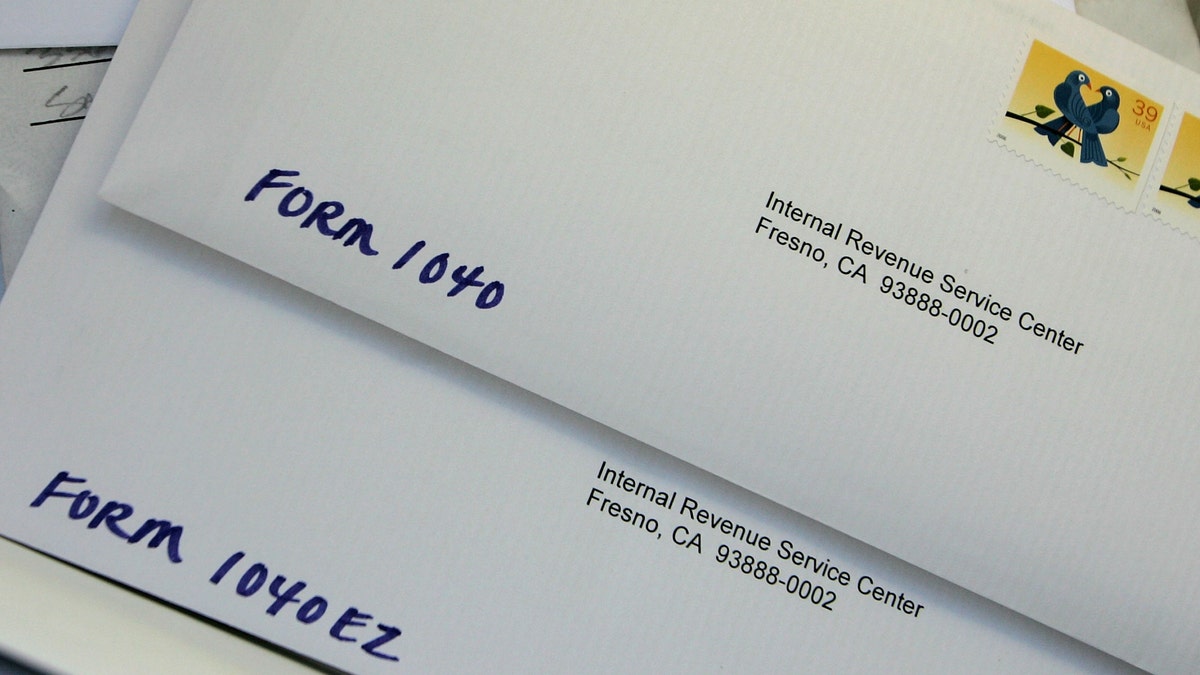
Letters to the Internal Revenue Service are piled up at the U.S. Post Office curbside drop off in San Francisco, California. (Photo by Justin Sullivan/Getty Images) (2007 Getty Images)
The economy is not doing well. Unemployment is too high and big deficits threaten the credit worthiness of the federal government, and only genuine tax reform will make things right.
With 46 percent of Americans paying no income taxes and many more who pay very little, it is no wonder federal spending is at record levels. It’s simply too easy to vote for politicians that promise free health care services and other worthy benefits by raising taxes on someone else—the wealthy.
Taxing the well off is not free—it slows growth, smothers jobs creation and pushes down wages for the middle class and working poor.
Much of the U.S. economy is not large multinationals but rather are innovative startups, the local restaurant and other small business services, who are mostly organized as limited liability corporations and pay the highest personal tax rates. For those jobs creators the combination of federal, state and local taxes often increases the bite on income to well above 50 percent.
[pullquote]
The impact is large and negative. During the Obama years, unemployment peaked at 10 percent and the economy has since grown at a 2.1 percent pace.
Over the comparable Reagan years, when taxes, especially on the well-off were lower but more voters paid at least some income taxes, unemployment peaked at 10.8 percent but then the economy grew at 5.3 percent.
Simply put, with lower taxes on the wealthy and more voters with skin in the game, the federal government did less and the economy did better—many more jobs were created and workers had more power to bargain for decent wages than they do now.
The highest marginal federal tax bracket is about 40 percent, but with so few Americans paying significant taxes, the average income tax rate is about 12 percent.
To exercise some restraint on federal spending why not require everyone to pay at least 6 percent of their income in taxes and set the maximum rate of 18 percent—that’s about what Barack and Michelle Obama paid on their 2012 income. Folks in the middle would pay something in between so that the average take is still 12 percent of income.
Each year, automatically adjust those levels up or down so that the share of federal spending financed by the income taxes remains constant—if folks want more or less federal spending, everyone pays more or less federal taxes.
Also, get rid of all the deductions and exemptions—everyone pays on everything they earn. There should be no special preferences for capital gains or the carried interest of Wall Street financiers, and then the minimum and maximum rates could be set even lower.
These reforms would eliminate the terrible disincentive high taxes impose on small businesses to invest, grow and create jobs. Corporate tax rates could be similarly reformed so that investment decisions are not made on the basis of getting a tax credit but on the likelihood of boosting profits and employment.
For the working poor having to pay some taxes would be a jolt—as it would be for the elderly depending on social security.
For the former, the minimum wage could be boosted an appropriate amount—perhaps 50 cents an hour—beyond what President Obama and Congress agree. Social security payments could be similarly hiked, on a one time basis, by adjusting the payroll tax a few tenths of a percentage point.
A one time jolt to inflation would follow as wages above the minimum adjusted through the forces of supply and demand, but it would be worth it to have tax sanity long term.
Since politicians running for a seat in the Senate, House and the Oval Office could no longer promise the moon by getting someone else to pay for it, the economy would grow robustly and more Americans would benefit from the best social program of all—a good paying job and a promising future.
